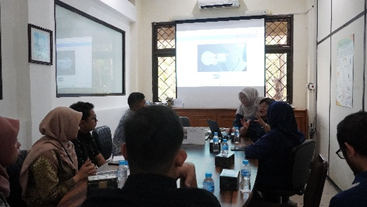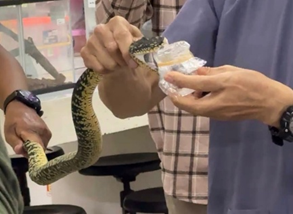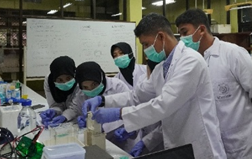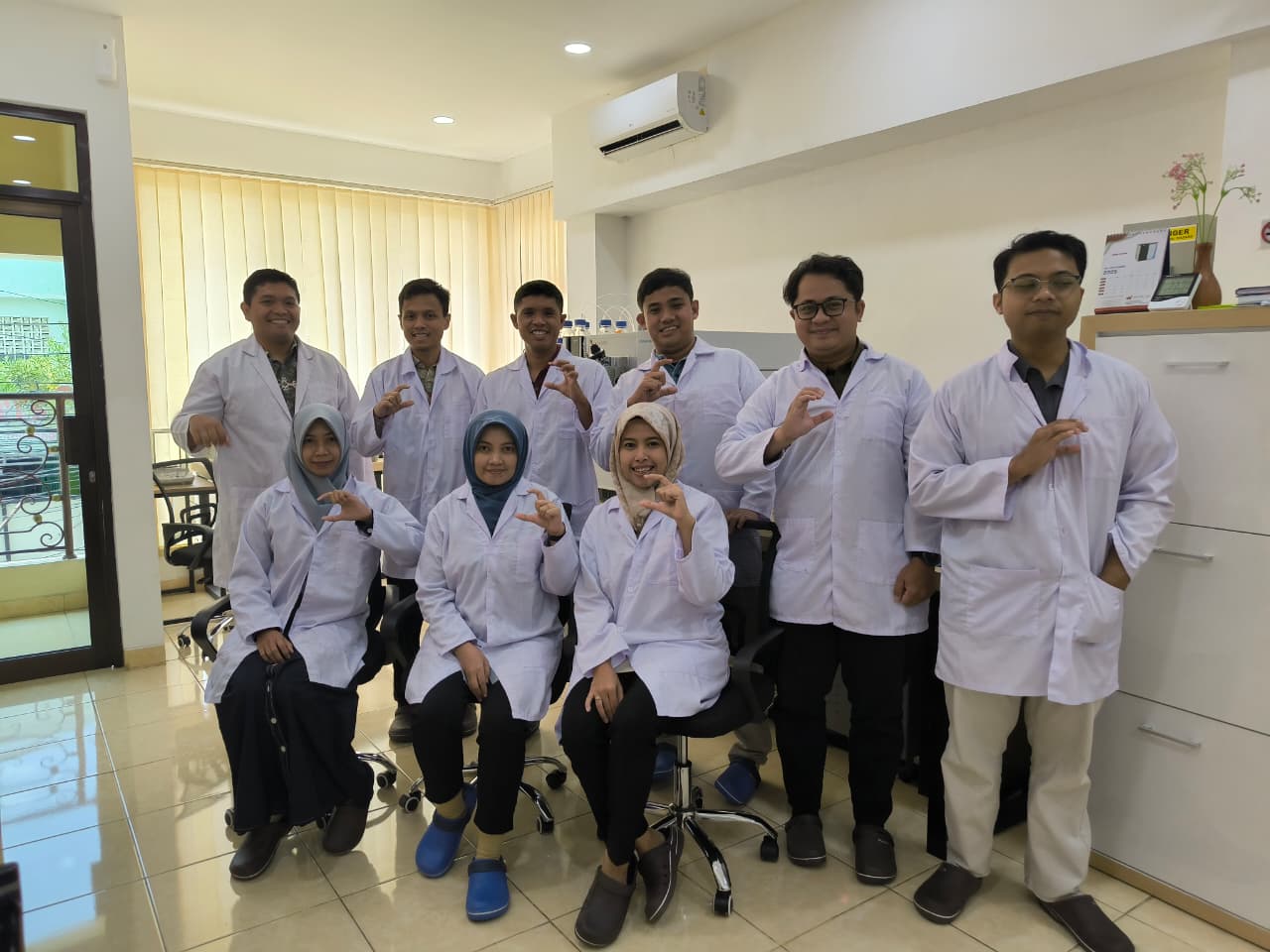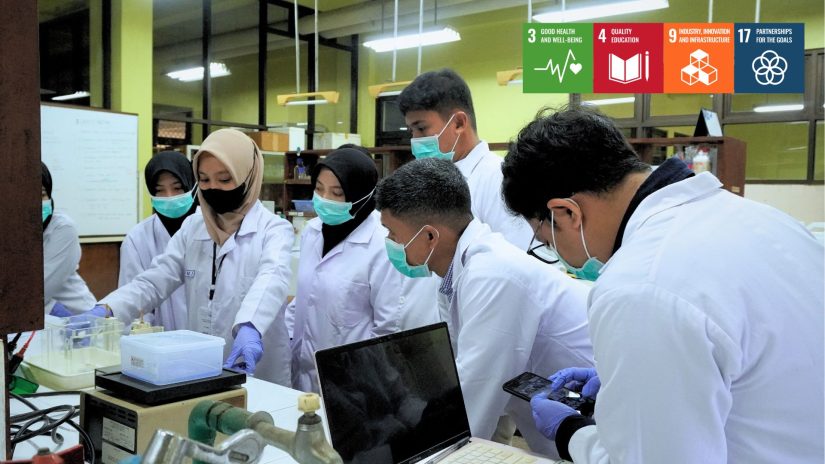
The Biotechnology Study Center of Universitas Gadjah Mada (UGM) organized a Snake Venom Proteomics Workshop on Wednesday–Saturday, 17–20 September 2025, with participants from the research team of the State Intelligence Agency (BIN) of the Republic of Indonesia. This activity is part of the Center’s efforts to strengthen proteomics research networks across disciplines and institutions.
The workshop was led by Prof. Dr. Yekti Asih Purwestri, Head of the Biotechnology Study Center, together with Dr. Tri Rini Nuringtyas as the main coordinator. Using the snake collection of the Faculty of Biology UGM, the training covered venom milking and handling techniques, as well as the characterization of venom protein components.
- The venom milking technique was directly demonstrated by Dr. drh. Slamet Raharjo, M.P.
- The snake handling technique was guided by Dr. Fajar Sofyantoro.
Following the theoretical sessions, participants carried out practical work on venom protein handling, including protein quantification, characterization using SDS-PAGE, and proteomics preparation at the Biochemistry Laboratory of the Biotechnology Study Center. Further analysis was conducted using LC-HRMS in collaboration with Corpora Science.
This workshop is expected to serve as a platform for knowledge-sharing as well as a form of community service by the Biotechnology Study Center. It also contributes to the achievement of the Sustainable Development Goals (SDGs), namely:
- SDG 3 (Good Health and Well-Being): supporting research development on snakebite management for public health.
- SDG 4 (Quality Education): strengthening human resource capacity through knowledge transfer and hands-on training.
- SDG 9 (Industry, Innovation, and Infrastructure): fostering research innovation in proteomics and its applications.
- SDG 17 (Partnerships for the Goals): enhancing collaboration across institutions and scientific disciplines.
Through this program, the Biotechnology Study Center of UGM reaffirms its commitment to producing applied research that provides broad benefits for society and advances scientific knowledge.

